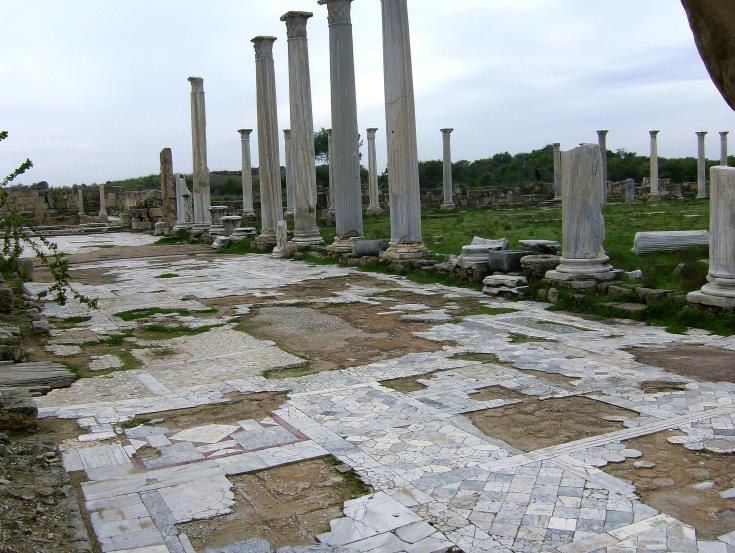A Russian collector attempting to sell on eBay a piece of Cyprus cultural heritage, marble from the ancient ruins of Salamis in Turkish-occupied Famagusta, was stopped by an activist.
The online auction was aborted due to the intervention of Tasoula Hatzitofi, a Famagusta refugee, activist and author.
An activist living in San Francisco alerted Hatzitofi about the auction.
Through her organization Walk of Truth, based in the Hague, Netherlands, Hatzitofi obtained a license to prevent any antiquities from being sold on eBay.
Salamis holds cultural and political resonance on the island due to its history and decades-long division.
Hatzitofi asked eBay to withdraw the specific marble piece from the auction and bring her in contact with the collector who was auctioning it.
“Our goal is to find out when and how this piece of marble was removed from Salamis …who the smuggler is.
“We must turn to art dealers and raise awareness among collectors and owners to donate it back to Cyprus,” said Ms Hatzitofi.
Salamis is thought to have been Cyprus’ capital as far back as 1100 BC; it was considered an important port city.
During the Roman period, Salamis was the largest city in Cyprus, stretching 2 kilometres down the shore and 1 kilometre (0.6 miles) inland.
Hatzitofi, who studied sales on eBay with UCL University Professor, Mark Altawee, discovered that Cyprus is third in antiquities sales on the site.
Walk of Truth is a not-for-profit foundation in the Netherlands since 2011.
It draws on a broad network of high-level contacts in government, museums, cultural agencies, including UNESCO and Interpol.
Its founder, Hadjitofi, has 30 years of experience tracking down and repatriating antiquities looted from Cyprus and sold worldwide.
The Turkish invasion in 1974 fostered a network of dealers in illicit antiquities whose aim was to sell the cultural heritage of Cyprus.
With the Turkish army’s encouragement and help, the trade in illicit antiquities has brought great profit to those involved.
Cypriot treasures already adorn private collections in Turkey, Russia, Switzerland, the UK, the US, Australia, and Japan. (source CNA)










